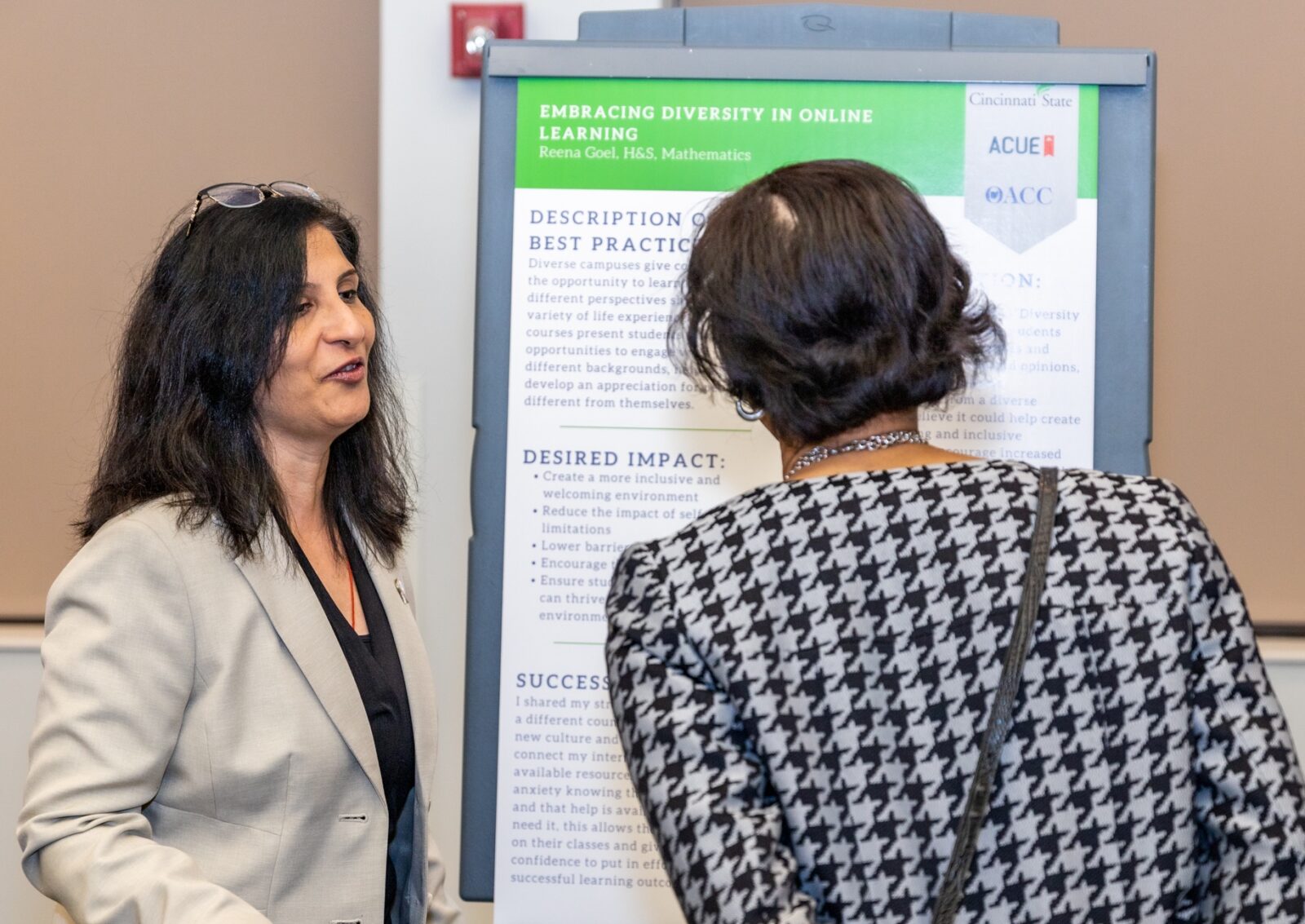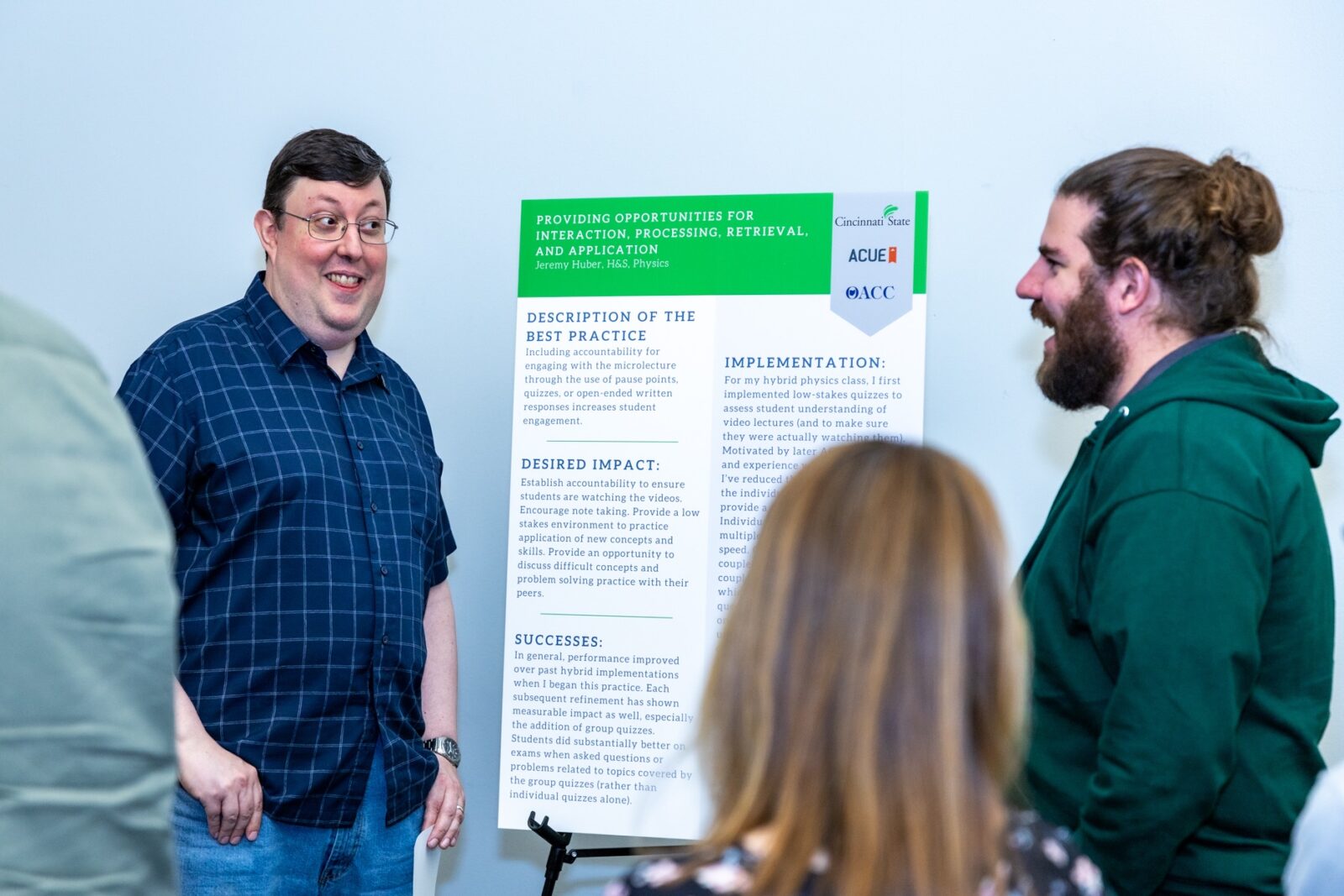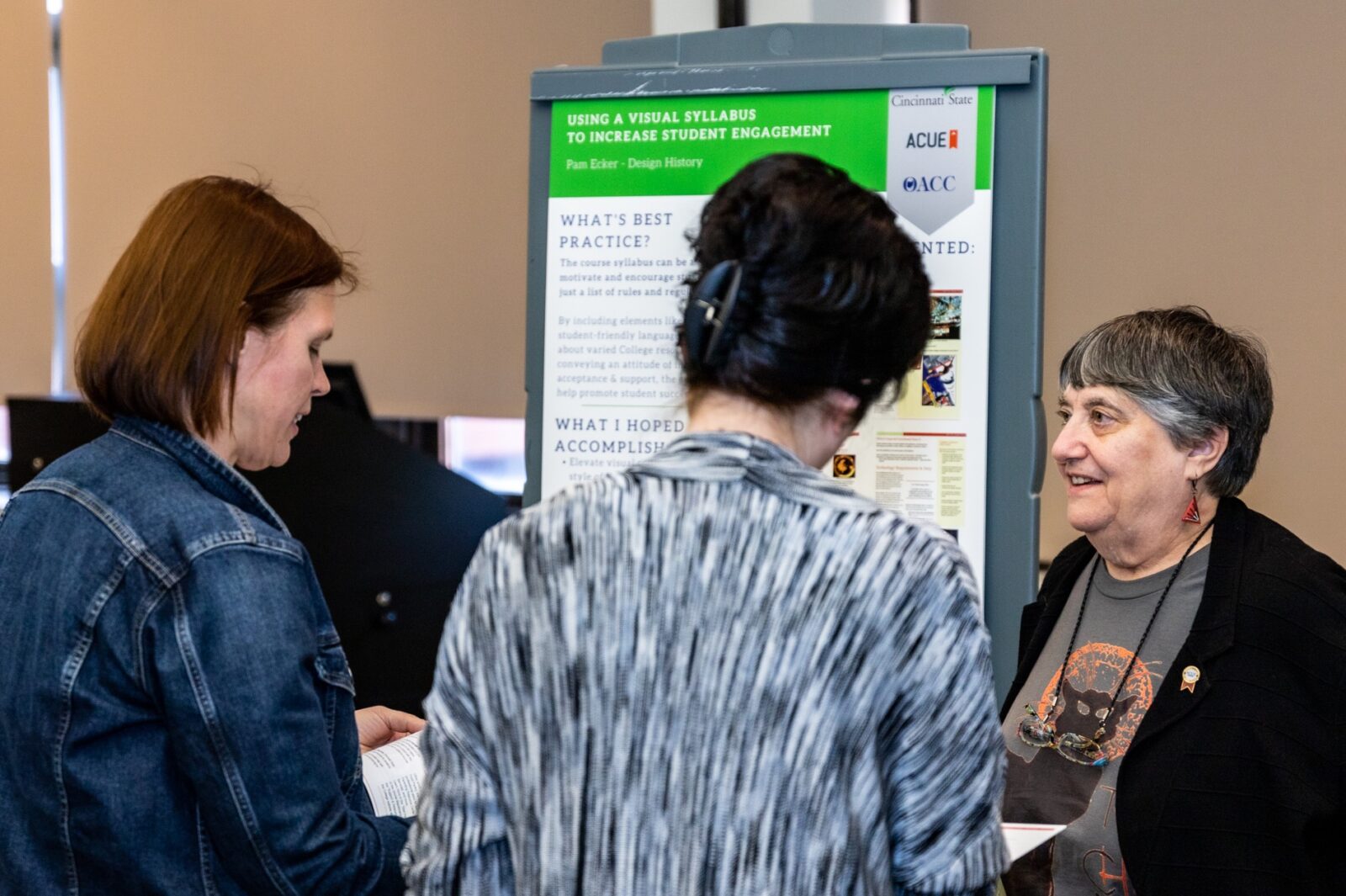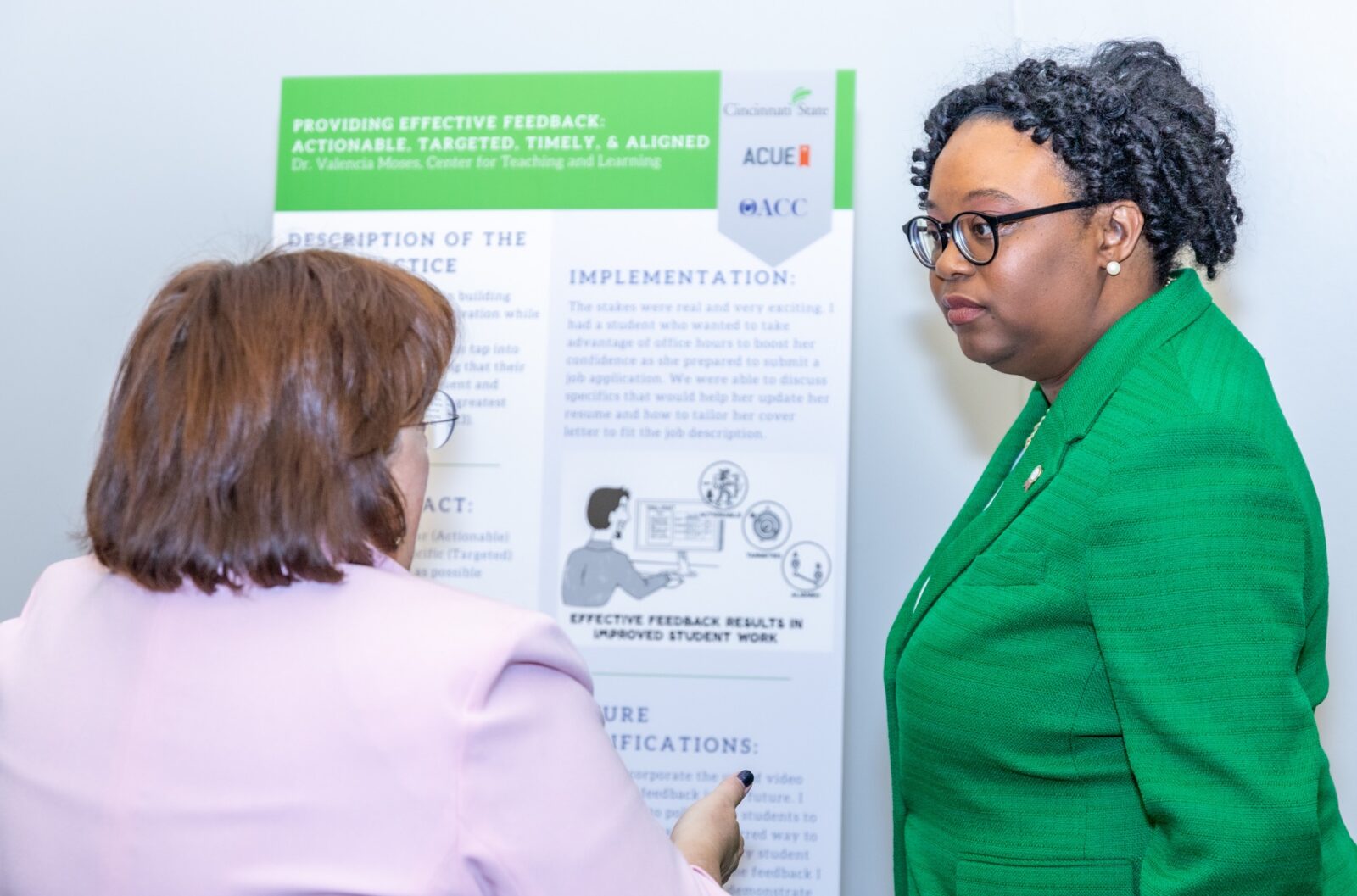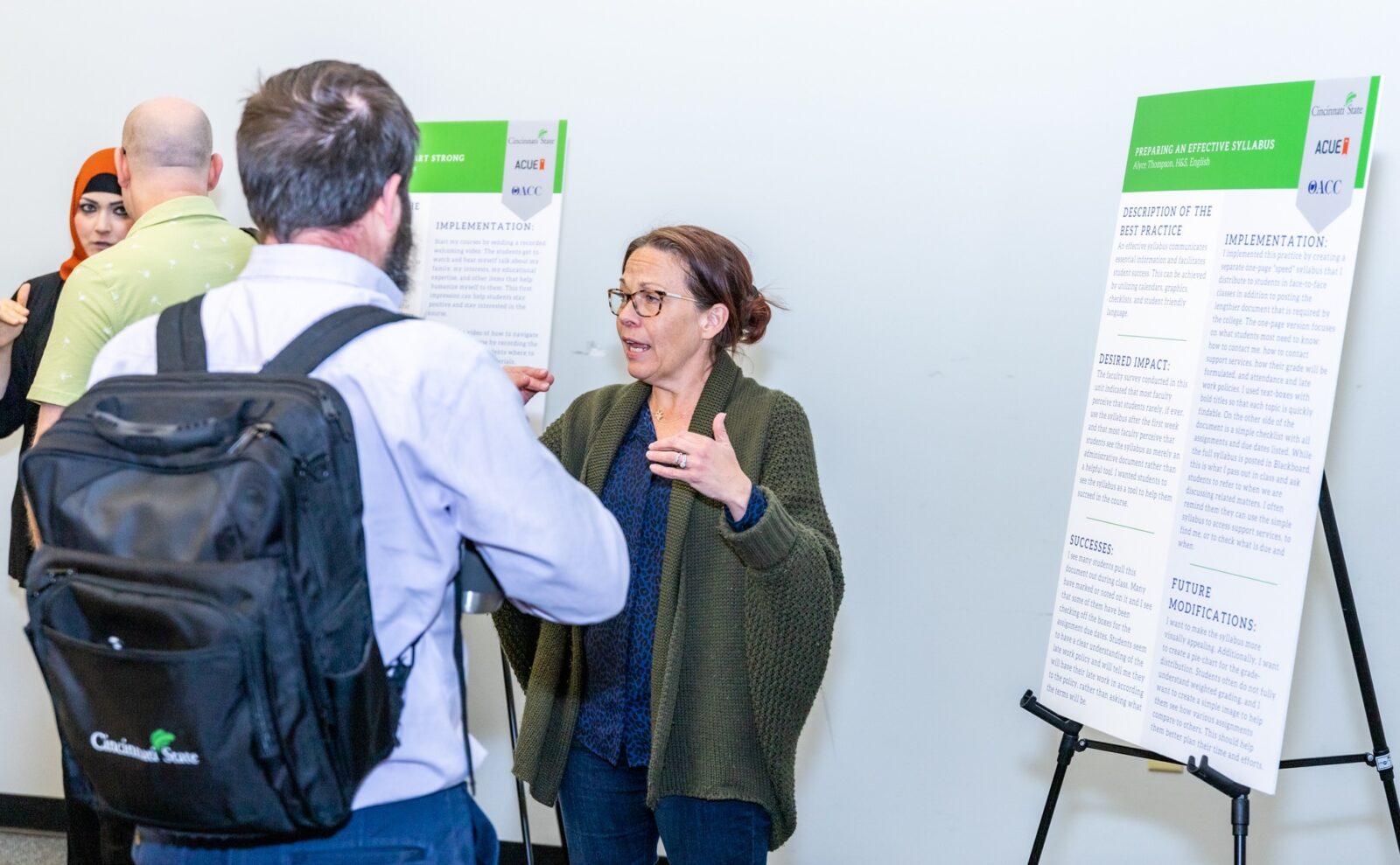ACUE celebration recognized CS faculty who earned the “Effective Teaching” credential
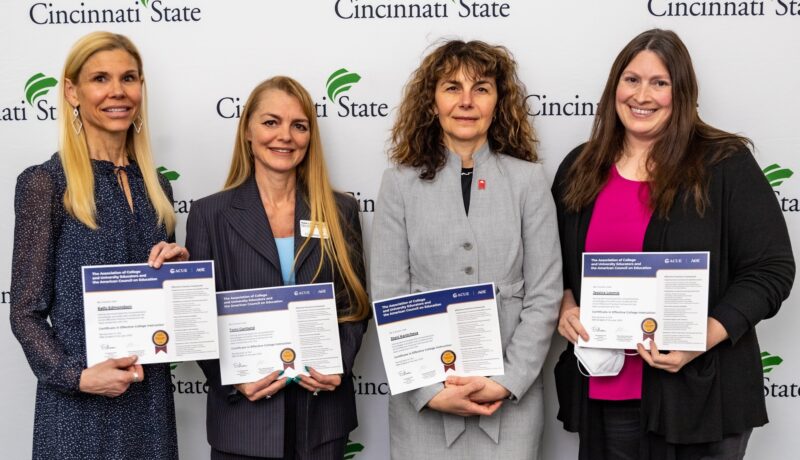
During Common Time on April 10, Cincinnati State recognized full-time and adjunct faculty members who earned the “Effective Online Teaching Practices” credential offered by ACUE (Association of College and University Educators).
Nearly 50 Cincinnati State faculty members have finished or will soon complete the full ACUE course or related “micro-credentials.”
- Some of the completers shared examples of “best practices” techniques they have added to their classes during a Poster Session that followed the recognition ceremony.
- The 15 posters are available in the Common Time folder on the College intranet. Go to How the College Works > Academics > Common Time > Common Time Documents > 2023 > 4.10.23 ACUE.
The ACUE Effective Teaching credential is earned by completing a two-semester online course that includes weekly viewing and reading of resource materials, assessment and discussion of examples and case studies, and required implementation of new teaching practices.
- The course’s 25 modules cover hundreds of practices that promote active and effective student learning, and many of the practices apply to in-person and hybrid course formats as well as online instruction.
- The ACUE credential is the only nationally-recognized collegiate teaching credential endorsed by the American Council on Education.
During the ceremony, Assistant Dean of Online Learning Stephanie Stafford presented certificates and pins to those who earned the ACUE credential. She praised the ACUE completers as “educators who have demonstrated their commitment to excellence and student success.”
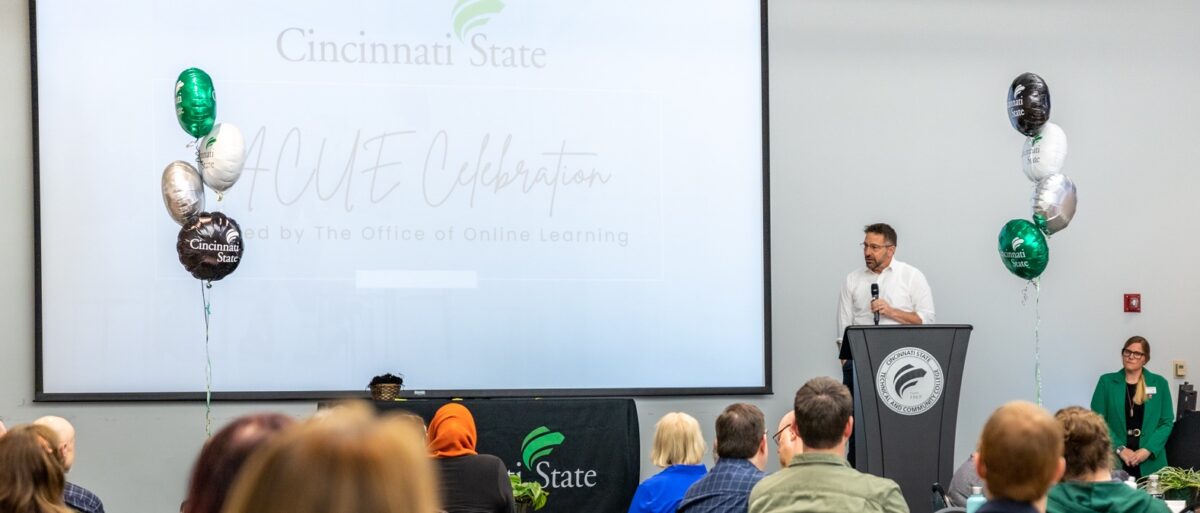
Provost Robbin Hoopes said the hard work of the ACUE completers “will have a ripple effect” at Cincinnati State and is important to increasing equity for students in online courses.
He noted that some of the completers were part of a national study, funded by the Bill & Melinda Gates Foundation, on improving student experiences and outcomes in “gateway” courses.
Others who congratulated the completers were Laura Rittner, Executive Director of the Success Center for the Ohio Association of Community Colleges (OACC), and Marianne Dombroski, ACUE Partnership Director.
Completers who received their ACUE certificate and pin on April 10 included:
ACUE Cohort 1 – Completed in Fall 2021
- Dr. Kelly Edmondson
- Tomie Gartland
- Dr. Stani Kantcheva
- Jessica Loomis
ACUE Cohort 2 – Completed in Spring 2022
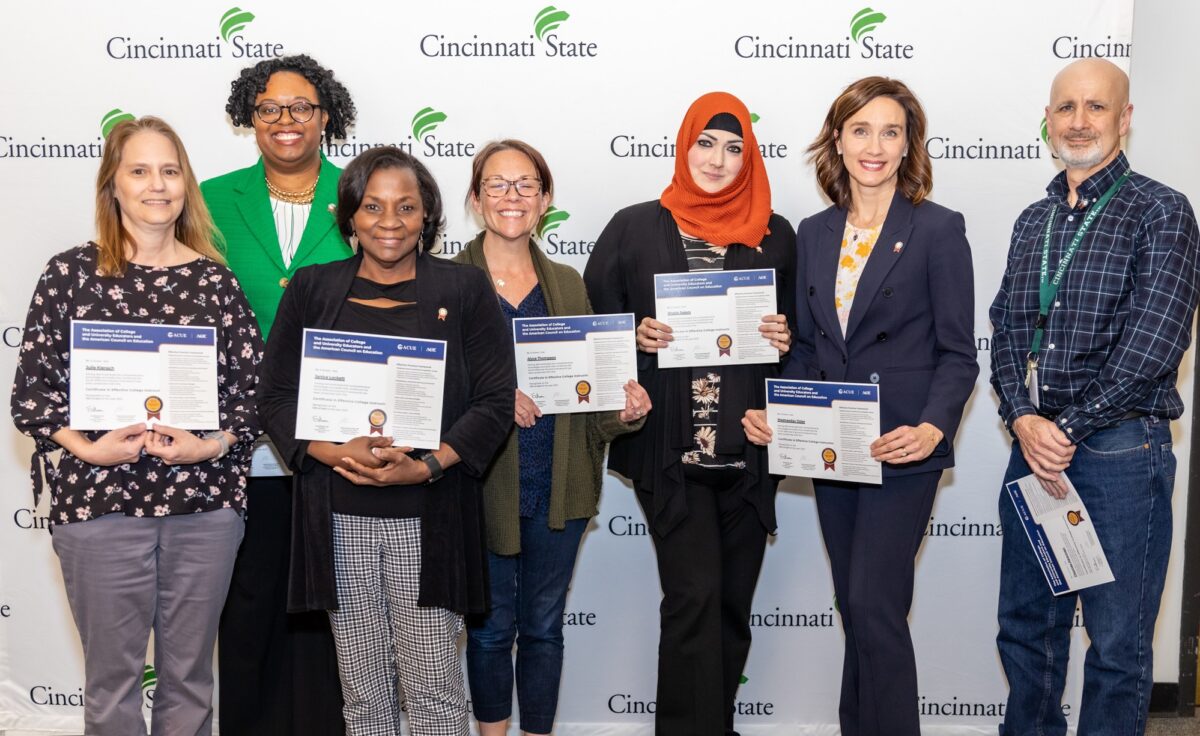
- Julie Klensch
- Dr. Janice Lockett
- Dr. Valencia Moses
- Thomas Newman
- Wednesday Oster
- Shada Salem
- Alyce Thompson
ACUE Cohort 3 – Completed in Fall 2022
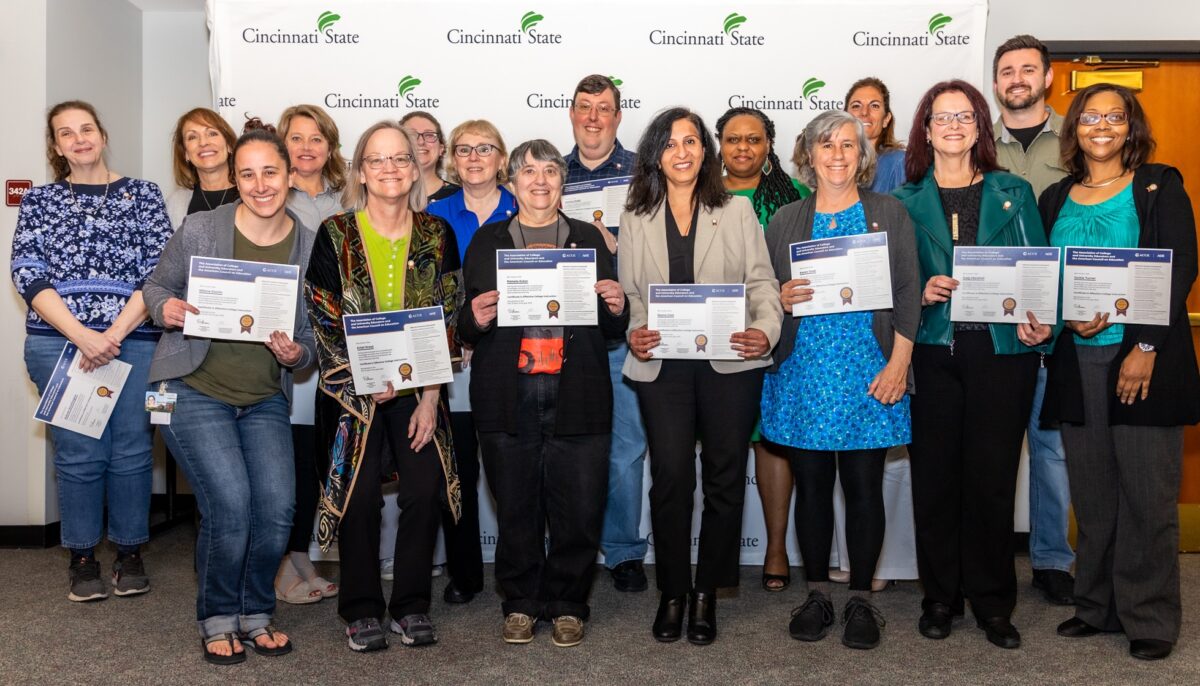
- Nora Beckmann
- Rebecca Boggs
- Margaret Clark
- Donna Von Deylen
- Milene Donlin
- Kristi Drout
- Pam Ecker
- Reena Goel
- Dr. Karen Groh
- Dr. Jeremy Huber
- Angelica Kennedy
- Paula Kirch Smith
- Judy Marshall
- Ryan Schmidt
- Jackie Turner
- Dr. JoAnne Worthington
Other ACUE credential earners who were not able to attend the April 10 event are:
- Amund Amundson
- Anthony Baker
- Edward Barloh
- Ronnie Gladden
- David Hensley
- Sean Johnson
- Colleen Meyer
- Patrick Moore
- Sanjay Paul
- Ryan Shadle
Faculty member who will complete the ACUE credential this semester (Spring 2023) are:
- Ann Gingell
- Dr. Beth Hamon
- Caleb Ochs-Naderer
- Carla Rhoades
Completers of the micro-credential “Inclusive Teaching for Equitable Learning” are:
- Ann Gingell
- Scott Horn
- Greg Kelly
- Angelica Kennedy
- Dr. Valencia Moses
- Carla Rhoades
- Shada Salem
- Ryan Shadle
- Dr. Ralph Whaley
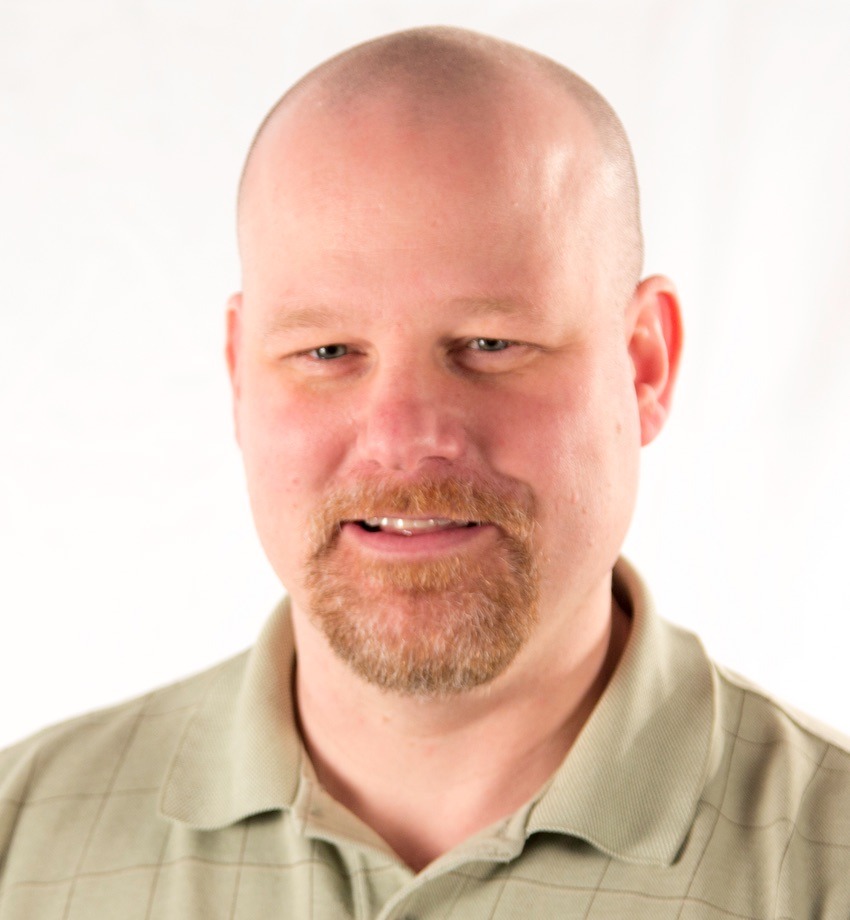
Dr. Stafford also noted that the first Cincinnati State faculty member who earned the ACUE credential was Math professor Scott Horn, in Spring 2021.
Scott was part of a small group of Math and English teachers who were involved in an early rollout of ACUE credentialing efforts, supported by funding from the “Strong Start to Finish” program of the Ohio Department of Higher Education.
Stephanie said, “Scott is a trailblazer in online education at Cincinnati State, and his commitment to ACUE during a challenging time– Fall 2020 and Spring 2021– helped pave the way for many other faculty.”
Scenes from the Poster Session are below.
